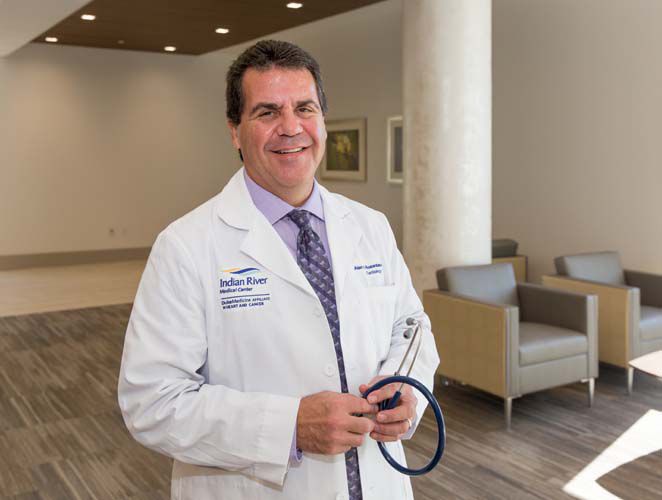
Two new cholesterol-busting drugs are now on the market, but they both come with drawbacks.
More than 75 million Americans – roughly one-third of the country’s adult population – have a low-density lipoprotein (LDL) cholesterol problem. They have too much of it, according to the Centers for Disease Control.
For the past 30 years, doctors have successfully treated the vast majority of these patients using a class of drugs called “statins.” Some of the most familiar names on that list are Lipitor, Pravachol, Crestor and Zocor. But now there’s a new class of LDL-reducing drugs on the market that offer an alternative to statins.
Dr. Alan Rosenbaum, an adult cardiovascular disease specialist at the Indian River Medical Center, says, “There’s been very good response clinically with proven lower cardiovascular events with patients on statins long term, but there have also been lots of patients who have had adverse reactions from statins.”
The Harvard Medical School agrees. It points out that while statins “have been shown to prevent repeat heart attacks in people who have already had one, and first heart attacks in a wide range of at-risk individuals,” there is a smaller subset of patients for whom statins “don’t lower [LDL] cholesterol enough,” and that “some people can’t take a statin because of side effects like muscle pain, liver damage or the development of diabetes.”
Rosenbaum says that between 10 percent and 30 percent of patients taking statins may experience some of those side effects, while Harvard takes the middle ground, putting that figure at 20 percent.
About 15 months ago, Rosenbaum and his colleagues were given another option for treating high levels of LDL when the Food and Drug Administration approved two new, injectable cholesterol-busting drugs known as PCSK9-inhibitors.
The pharmaceutical giant Amgen’s drug “Repatha” and another drug called “Praluent” both target a specific protein inside the liver – proprotein convertase subtilisin kexin 9, or PCSK9.
Knocking out this protein, according to researchers at Harvard, can “dramatically reduce the amount of harmful LDL cholesterol circulating in the bloodstream. Lower LDL translates into healthier arteries and fewer heart attacks, strokes and other problems related to cholesterol-clogged arteries.”
However, the Wall Street Journal points out both Repatha and Praluent carry a price tag of about $14,000 a year.
By comparison, an annual supply of generic statins costs about $140 – or 1 percent of the cost of the new drugs. Not surprisingly, as the Tampa Bay Times reported this November, almost all health insurance companies are refusing to pay for the new drugs.
While Rosenbaum calls the PCSK9-inhibitors “an ingenious discovery,” he, too, appears at least a little cautious about fully embracing them.
While a study published in the Journal of the American Medical Association this November showed patients using PCSK9-inhibitors achieved “the lowest average level [of LDL] in a major trial,” only 968 patients participated. And, the study was funded by Repatha manufacturer Amgen.
At the very least Rosenbaum calls that study’s sample size “way too small,” and adds, “We need 10,000 or 20,000 [patients in] large, multi-center trials” to get a more accurate picture.
The National Institute for Health and Care Excellence concurs. “PCSK9-inhibitors,” it says, “have been clinically proven to help more patients reach cholesterol treatment goals but their high prices – and a lack of data so far on the cardiovascular outcomes – raise questions about their cost-effectiveness.”
Moreover, HealthImpactNews.com reports, “a study published in the New England Journal of Medicine in April shows that Praluent causes higher incidence of many of the same side effects as statins.”
Pfizer canceled its own PCSK9-inhibitor program in October when a clinical trial involving 27,000 patients showed that many had developed antibodies to the drug, which cancelled-out its hoped-for benefits.
That said, there is no denying that PCSK9-inhibitors show great promise.
Anyone who has been unable to lower their LDL cholesterol levels with statins, diet and exercise and who has the means to pay upwards of $14,000 a year for monthly injections of these new drugs should consult his or her cardiovascular specialist for more information.
Dr. Alan Rosenbaum is with the Indian River Medical Center. His office is in the new Health and Wellness building at 3450 11th Court, Suite 102. The phone number is 772-778-8687.



